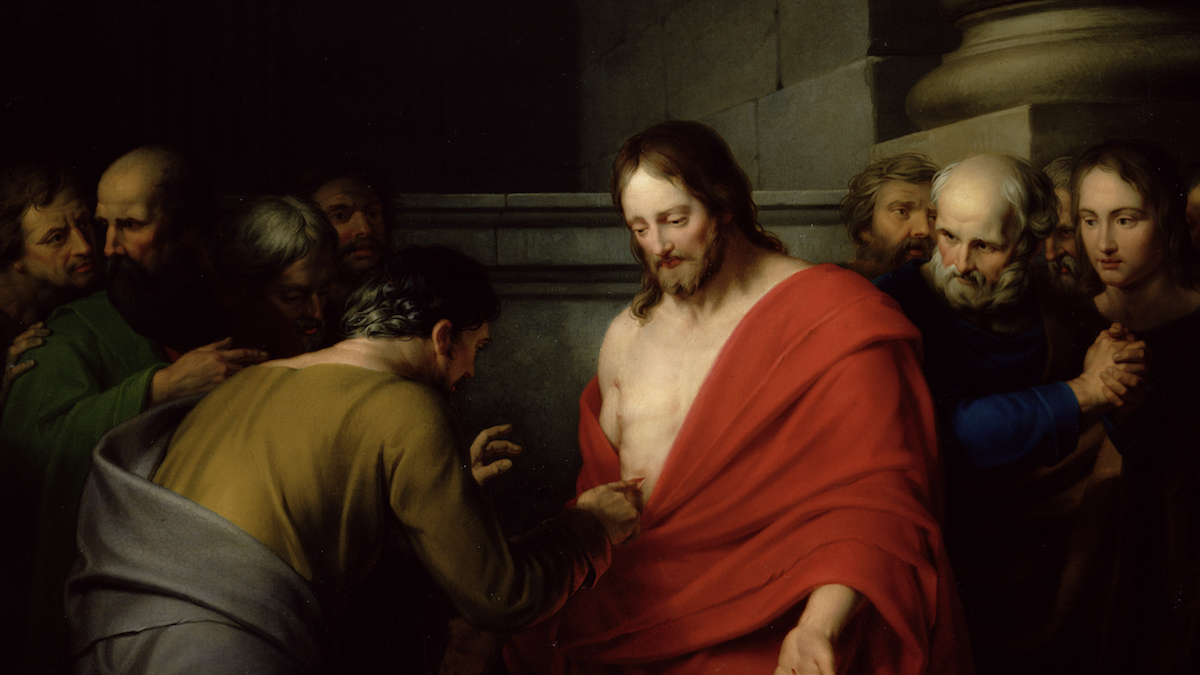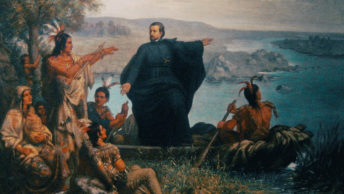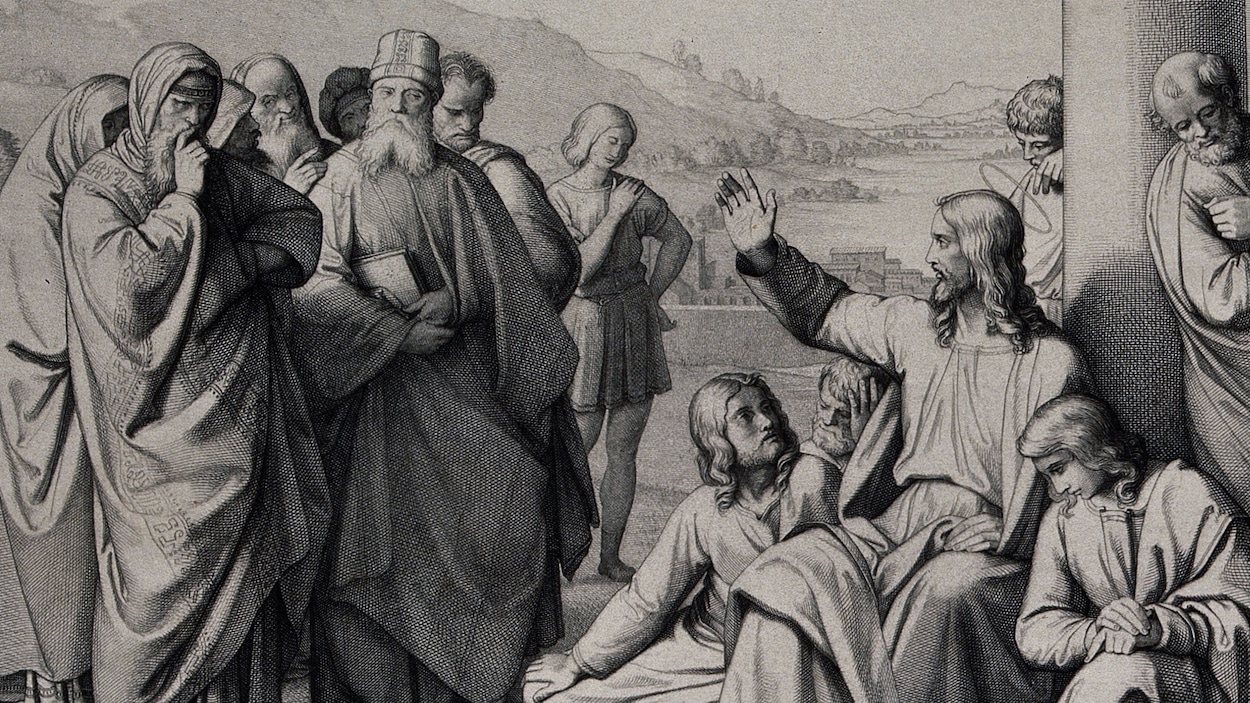Imagine that I were to ask for a volunteer to conduct an experiment here in church—and that you raised your hand and were chosen. Let’s say that I blindfolded you, brought you up front, told you there was a metal water bucket on the floor here, and asked you to find out whether it was empty or contained water. Since you couldn’t see, how would you discover the answer? There are three possibilities. First of all, after being led over to the bucket, you might reach inside and feel for yourself; you’d gain first-hand knowledge of whether or not there was any water inside. This form of learning is called experience. Secondly, you might perform an experiment and analyze the results. For instance, you could drop a coin in the bucket; if you hear a splash, it obviously contains water, but if you hear the coin clank against the metal pail, you know the bucket is empty. This form of learning is called reasoning. A third way of discovering whether the bucket contains water is by asking someone you trust; that person can look inside and tell you, “Yes, it has water,” or “No, it’s empty.” This form of learning is called believing.
Which of these three ways of learning would you guess accounts for most of our knowledge? The answer is the third way: believing, or accepting the testimony of others. Some experts say as much as 80% of our knowledge is received in this manner; after all, there’s a limit to how much we can personally experience, observe, or analyze for ourselves—but through books, pictures, lectures, television documentaries, the Internet, and other sources of information made available through the testimony of other people, a world of knowledge is made accessible to us (Mark Link S.J., Illustrated Sunday Homilies, Year B, Series I, p. 33).
The same thing is true with faith. Some people learn of the existence of God through first-hand experience in the form of a vision, revelation, or a special and intense moment of grace, but this is relatively uncommon. Others come to believe in God as a result of logical reasoning, concluding, for instance, that the amazing world around us must be the result of a Higher Intelligence—but this too is a minority approach to faith. Most people come to believe in God through the testimony and example of others; seeing goodness and love in action often makes it possible to believe in a good and loving God. Because this is the case, our role as disciples of Christ takes on added importance. Jesus is relying on us to spread the Gospel, and so our lives must witness to the truth that He is Lord.
In the Gospel of John (20:19-31), St. Thomas preferred the first way of learning: personal, first-hand knowledge. Reasoning wouldn’t bring him to belief in the risen Christ—for to believe that a crucified man had come back to life was totally illogical. The testimony of others wasn’t good enough for Thomas; he probably concluded that the other apostles were victims of their own wishful thinking. Only if he personally could see and touch Jesus would he believe in the Resurrection. As it happened, his wish was granted—but in granting it Jesus gently chided him, saying, “Blessed are those who have not seen and have believed.” In other words, accepting the faith testimony of others can result in great blessing. As St. John (1 John 5:1-6) says, those who believe in Jesus conquer the world—in the sense of rising above earthly limitations, problems, and preoccupations. The Acts of the Apostles (4:32-35) describes the wonderful community life of the early Church—a living faith which was surely a major factor in attracting new members. Our actions and way of life can be of vital importance in helping others come to know and accept Jesus.
There have been many instances in which people have joined the Church because they were made to feel welcome and accepted by the Church’s members; there have also been cases in which people were turned off on the idea of religion because of the way they were treated by Christians. Our words and actions and attitudes can have an influence—either positive or negative—far greater than we might expect; our example might help someone else conclude that religion is based on love, or on hypocrisy. Jesus calls us to be aware of our daily opportunities, and to use them well. A kind word, a caring gesture, a sympathetic response, a timely compliment, or a genuine expression of support might make a real difference; a friendly welcome, a helping hand, an offer of assistance, an accepting attitude, or a simple favor can encourage and reassure someone searching for the truth—or at least convince a skeptic that the truth does exist.
Five hundred years ago a great leader of the Church in France, Archbishop Francois Fenelon, had a reputation for loving God so much that his face shone when he talked about Him. He happened to be traveling with an unbeliever, an English lord, who spent the night with him at an inn. The following morning the nobleman rushed away in order to preserve his atheism, saying, “If I spend another night with that man, I shall become a believer in spite of myself!” (Knight’s Master Book of 4000 Illustrations, p. 221). That’s the sort of difference we’re supposed to make in the world: living out the Gospel in such a way that while it can be rejected, it can’t be ignored.
Jesus wants us to be His witnesses—sometimes by our words, and always by our deeds. We are called to be evangelizers, sharing the Good News of salvation by living out the grace of Easter. Thomas the apostle became Thomas the saint, not just because he cried out “My Lord and my God!” when he saw the Risen Lord, but also because he began preaching and sharing his faith in Christ. Few if any of us are called to a dramatic, public life like St. Thomas’, but all of us are expected to put our faith in practice. We’re giving testimony not about whether a water bucket is empty or full, but about the truth that Jesus is Lord. He has the words of everlasting life, and He asks us to share them with others.








